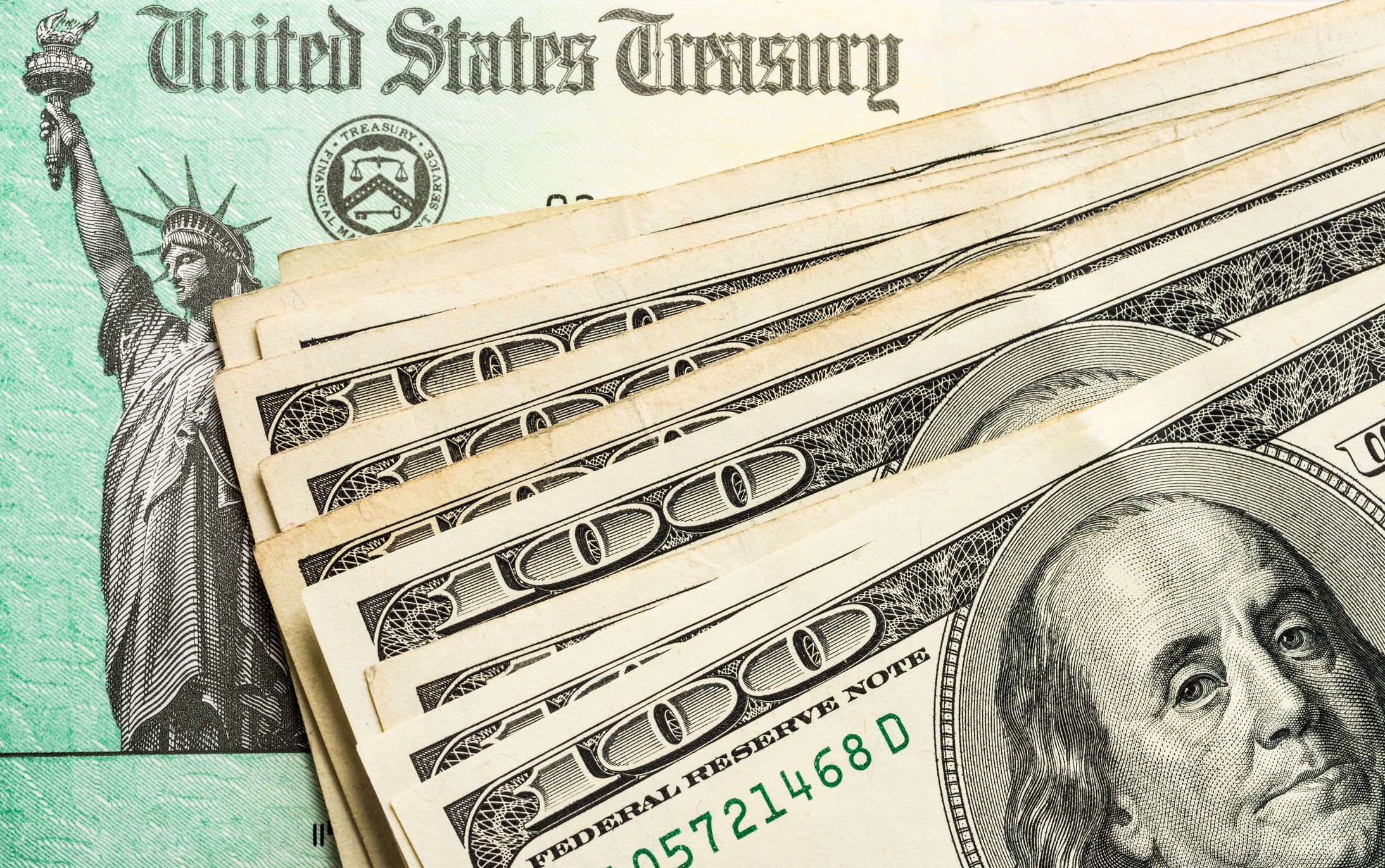Obama's Plan for Averting the Fiscal Cliff
He could pull it off with higher taxes on businesses and the wealthy.

Profit and prosper with the best of Kiplinger's advice on investing, taxes, retirement, personal finance and much more. Delivered daily. Enter your email in the box and click Sign Me Up.
You are now subscribed
Your newsletter sign-up was successful
Want to add more newsletters?

Delivered daily
Kiplinger Today
Profit and prosper with the best of Kiplinger's advice on investing, taxes, retirement, personal finance and much more delivered daily. Smart money moves start here.

Sent five days a week
Kiplinger A Step Ahead
Get practical help to make better financial decisions in your everyday life, from spending to savings on top deals.

Delivered daily
Kiplinger Closing Bell
Get today's biggest financial and investing headlines delivered to your inbox every day the U.S. stock market is open.

Sent twice a week
Kiplinger Adviser Intel
Financial pros across the country share best practices and fresh tactics to preserve and grow your wealth.

Delivered weekly
Kiplinger Tax Tips
Trim your federal and state tax bills with practical tax-planning and tax-cutting strategies.

Sent twice a week
Kiplinger Retirement Tips
Your twice-a-week guide to planning and enjoying a financially secure and richly rewarding retirement

Sent bimonthly.
Kiplinger Adviser Angle
Insights for advisers, wealth managers and other financial professionals.

Sent twice a week
Kiplinger Investing Weekly
Your twice-a-week roundup of promising stocks, funds, companies and industries you should consider, ones you should avoid, and why.

Sent weekly for six weeks
Kiplinger Invest for Retirement
Your step-by-step six-part series on how to invest for retirement, from devising a successful strategy to exactly which investments to choose.
President Obama is making political hay with his vow to allow tax cuts for the wealthiest to expire as he jockeys for post position right out of the starting gate of fiscal-cliff budget talks with the GOP leadership.
Ideally, Obama is looking for about $4 trillion in deficit reduction over a decade through a combination of deep spending cuts and a hefty revenue stream that he says should include a long-shot hike in the top tax rate from 35% to 39.6%. That’s where the rate was before President George W. Bush slashed it a decade ago.
To achieve his aim, Obama must pony up himself, agreeing to give House Speaker John Boehner (R-OH) significant entitlement reforms, including adjustments to Social Security, Medicare and Medicaid.
From just $107.88 $24.99 for Kiplinger Personal Finance
Become a smarter, better informed investor. Subscribe from just $107.88 $24.99, plus get up to 4 Special Issues

Sign up for Kiplinger’s Free Newsletters
Profit and prosper with the best of expert advice on investing, taxes, retirement, personal finance and more - straight to your e-mail.
Profit and prosper with the best of expert advice - straight to your e-mail.
The bartering isn't likely to be fully resolved during the lame-duck session of Congress set to stretch into mid- to late December. So the grand deal on fiscal-cliff issues won’t occur until next year. It'll be another punt, but not a permanent failure.
At stake is the state of the American economy: Economists warn that if the fiscal cliff is not avoided, the U.S. will sink back into recession next year, unemployment will rise and the financial markets will tumble.
Take a look at the biggest issues that make up the cliff:
-- A series of tax cuts and deductions worth $395 billion next year that have expired or are set to expire, including the Bush-era tax cuts and the reduction in the Social Security payroll tax.
-- The so-called sequester, with $65 billion in automatic spending cuts next year that will be triggered if action is not taken by the end of this year. The cuts would amount to $1.2 trillion over 10 years.
-- Raising the debt limit above the congressionally approved $16.39-trillion limit.
-- Extending emergency unemployment benefits, which could cost as much as $34 billion next year.
A temporary agreement is expected to come before the end of the year, with pledges to placate the markets and credit-rating agencies to avoid plunging over the cliff. It will include revival of a series of tax breaks that expired after 2011, chiefly a fix for the alternative minimum tax.
There are likely to be short-term extensions of all expiring tax cuts, buying time for a longer-term deal sometime in 2013, with a pledge to retroactively address the estate tax to restore favorable rates scheduled to end December 31.
Obama and Boehner also will have to sidestep the sequester deadline set for New Year's Eve, which triggers huge automatic defense cuts and automatic spending reductions. They'll agree to defer that action for at least a few months and perhaps up to a year, along with promising to raise the debt ceiling.
Then comes the hard part: closing the deal next year. It will happen as rancor yields to reason. When the alternative is another recession, Democrats and Republicans will find ways to compromise.
One way or another, businesses and the wealthy will pay more taxes. But despite his line in the sand, Obama might back down on higher tax rates for big earners. His victory gives him enough political capital to back the GOP into a corner with a threat of letting tax cuts for everyone expire, rather than just for high earners. But that might not sit well with lawmakers who have to run for reelection in 2014.
If he bends, he’ll want a lot in return, like an infrastructure bill and jobs package, along with a new extension of jobless benefits. Combined, these measures could cost hundreds of billions of dollars. In essence, it's another stimulus package, though the White House will try mightily not to call it that.
Obama will also work for immigration reform early next year, and he’s likely to get it. Republicans, fresh off Mitt Romney’s narrow losses in Colorado, Nevada and other battleground states where Hispanics voters turned out at historic levels, are wary of burning any more bridges with minorities, so they’re likely to go along.
There are more than 50.5 million Hispanics in the U.S., a 43% increase since 2000. That trend will remain in place, putting states such as Arizona and eventually Texas in play for Democrats. The president will think big: eliminating red tape for legal immigration, a path to citizenship for many illegal aliens, an expanded guest worker program, and swift citizenship for aliens who serve in the U.S. armed forces.
His position on immigration issues is far stronger than the Republicans’. He’ll either burnish his relationship with Hispanics by delivering on immigration reform or, if he fails, he'll surely remind the fastest-growing voting group that it was the Republicans who again blocked his try.
There is also room for bipartisan trade deals with Pacific Rim countries and the European Union.
There will be setbacks, of course, especially in the GOP-controlled House. Obama doesn’t have a mandate, but Mitt Romney’s defeat and the GOP’s failure to win a Senate majority will spur Boehner to engage in an ambitious bit of horse trading.
Boehner will have to corral his feisty tea party caucus, but it will happen this time. Unlike the failed grand bargain of 2011, this rodeo will be driven by the carrot, not the stick.
With reporting by Senior Political Editor David Morris and Senior Associate Editor Richard Sammon.
Profit and prosper with the best of Kiplinger's advice on investing, taxes, retirement, personal finance and much more. Delivered daily. Enter your email in the box and click Sign Me Up.

-
 Nasdaq Leads a Rocky Risk-On Rally: Stock Market Today
Nasdaq Leads a Rocky Risk-On Rally: Stock Market TodayAnother worrying bout of late-session weakness couldn't take down the main equity indexes on Wednesday.
-
 Quiz: Do You Know How to Avoid the "Medigap Trap?"
Quiz: Do You Know How to Avoid the "Medigap Trap?"Quiz Test your basic knowledge of the "Medigap Trap" in our quick quiz.
-
 5 Top Tax-Efficient Mutual Funds for Smarter Investing
5 Top Tax-Efficient Mutual Funds for Smarter InvestingMutual funds are many things, but "tax-friendly" usually isn't one of them. These are the exceptions.
-
 10 Retirement Tax Plan Moves to Make Before December 31
10 Retirement Tax Plan Moves to Make Before December 31Retirement Taxes Proactively reviewing your health coverage, RMDs and IRAs can lower retirement taxes in 2025 and 2026. Here’s how.
-
 When to Hire a Tax Pro: The Age Most Americans Switch to a CPA
When to Hire a Tax Pro: The Age Most Americans Switch to a CPATax Tips Taxpayers may outsource their financial stress by a specific age. Find out when you should hire a tax preparer.
-
 The Rubber Duck Rule of Retirement Tax Planning
The Rubber Duck Rule of Retirement Tax PlanningRetirement Taxes How can you identify gaps and hidden assumptions in your tax plan for retirement? The solution may be stranger than you think.
-
 Three Popular Tax Breaks Are Gone for Good in 2026
Three Popular Tax Breaks Are Gone for Good in 2026Tax Breaks Here's a list of federal tax deductions and credits that you can't claim in the 2026 tax year. High-income earners could also get hit by a "surprise" tax bill.
-
 Five Ways Trump’s 2025 Tax Bill Could Boost Your Tax Refund (or Shrink It)
Five Ways Trump’s 2025 Tax Bill Could Boost Your Tax Refund (or Shrink It)Tax Refunds The tax code is changing again, and if you’re filing for 2025, Trump’s ‘big beautiful’ bill could mean a bigger refund, a smaller one or something in between next year. Here are five ways the new law could impact your bottom line.
-
 Money for Your Kids? Three Ways Trump's ‘Big Beautiful Bill’ Impacts Your Child's Finances
Money for Your Kids? Three Ways Trump's ‘Big Beautiful Bill’ Impacts Your Child's FinancesTax Tips The Trump tax bill could help your child with future education and homebuying costs. Here’s how.
-
 Key 2025 Tax Changes for Parents in Trump's Megabill
Key 2025 Tax Changes for Parents in Trump's MegabillTax Changes Are you a parent? The so-called ‘One Big Beautiful Bill’ (OBBB) impacts several key tax incentives that can affect your family this year and beyond.
-
 QCD Limit, Rules and How to Lower Your 2026 Taxable Income
QCD Limit, Rules and How to Lower Your 2026 Taxable IncomeTax Breaks A QCD can reduce your tax bill in retirement while meeting charitable giving goals. Here’s how.